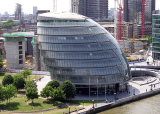
On Friday, the European Court of Human Rights confirmed that Ireland has initiated legal proceedings against the United Kingdom concerning a recent law granting conditional amnesties to
former soldiers and militants involved in the prolonged violence in Northern Ireland.
The legislation, which came into effect in September of last year, has faced criticism from victims' families, human rights organizations, and all major political parties in Ireland, encompassing both British unionists and Irish nationalists.
The Irish government filed the case on January 17, asserting that specific provisions of the law are incompatible with the European Convention, according to a statement from the ECHR.
Britain has opted to suspend prosecutions related to the "Troubles" period, citing their perceived lack of viability and advocating for the establishment of an independent body instead. The argument posits that prosecutions connected to events up to 55 years ago are increasingly unlikely to result in convictions, and the legislation is deemed necessary to draw a conclusion to the conflict.
In response to Ireland's decision to take the matter to court last month, Dublin emphasized its lack of alternative options, citing London's closure of any potential for a political resolution.
The British government labeled Ireland's legal challenge as "unnecessary."
The conflict in Northern Ireland witnessed approximately 3,600 casualties over three decades, involving Irish nationalist militants, pro-British "loyalist" paramilitaries, and the British military. The hostilities largely concluded with a peace deal in 1998. Photo by Adrian Grycuk, Wikimedia commons.









































